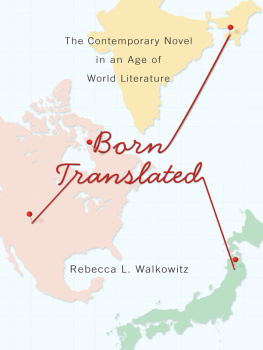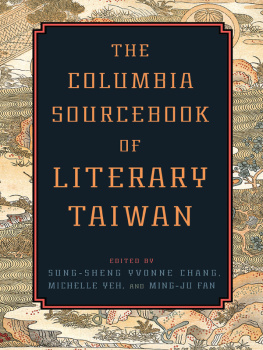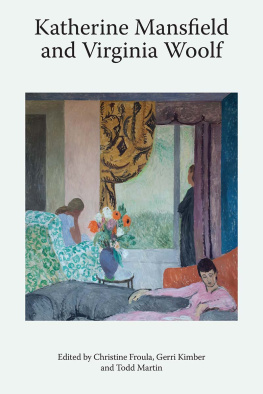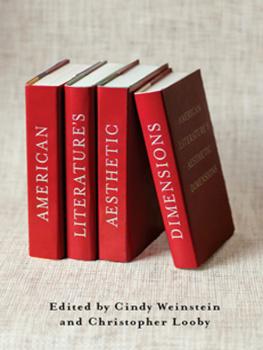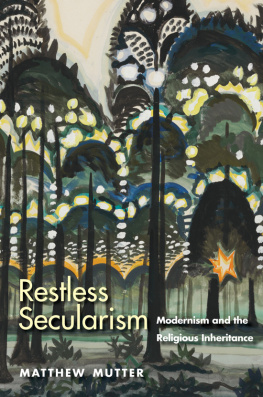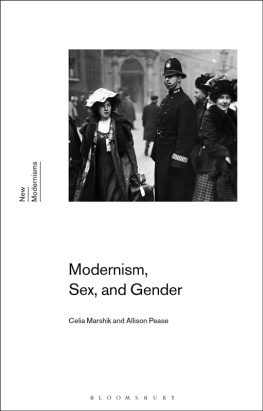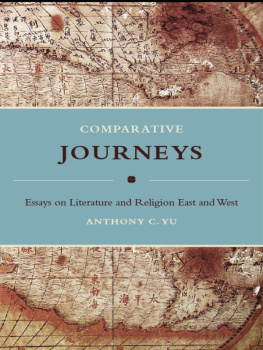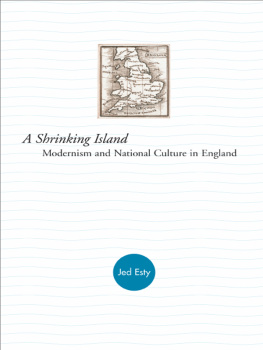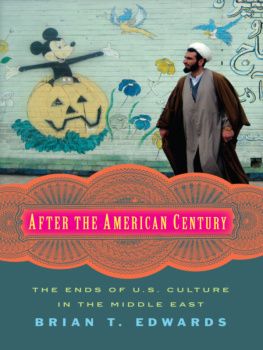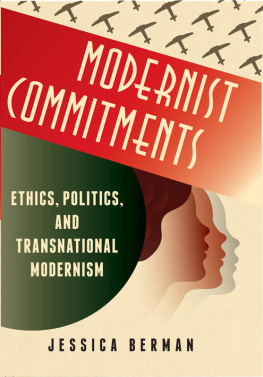BORN TRANSLATED
Literature Now
LITERATURE NOW
Matthew Hart, David James, and Rebecca L. Walkowitz, Series Editors
Literature Now offers a distinct vision of late twentieth-and early twenty-first-century literary culture. Addressing contemporary literature and the ways we understand its meaning, the series includes books that are comparative and transnational in scope as well as those that focus on national and regional literary cultures.
Caren Irr, Toward the Geopolitical Novel: U.S. Fiction in the Twenty-First Century
Heather Houser, Ecosickness in Contemporary U.S. Fiction: Environment and Affect
Mrinalini Chakravorty, In Stereotype: South Asia in the Global Literary Imaginary
Hctor Hoyos, Beyond Bolao: The Global Latin American Novel
Rebecca L. Walkowitz
BORN TRANSLATED
The Contemporary Novel in an Age of World Literature
COLUMBIA UNIVERSITY PRESS
NEW YORK
Columbia University Press
Publishers Since 1893
New York Chichester, West Sussex
cup.columbia.edu
Copyright 2015 Columbia University Press
All rights reserved
E-ISBN 978-0-231-53945-6
Portions of the previously appeared under the title of Close Reading in an Age of Global Writing, in Modern Language Quarterly 74, no. 2, pp. 17195. Copyright 2013, Modern Language Quarterly; reprinted by permission of Duke University Press.
Library of Congress Cataloging-in-Publication Data
Walkowitz, Rebecca L., 1970
Born translated : the contemporary novel in an age of world literature / Rebecca L. Walkowitz.
pages cm. (Literature now)
Includes bibliographical references and index.
ISBN 978-0-231-16594-5 (cloth : acid-free paper) ISBN 978-0-231-53945-6 (ebook)
1. LiteratureTranslationsHistory and criticism. 2. FictionTranslationsHistory and criticism. 3. Translating and interpreting. I. Title.
PN241.W35 2015
418'.04dc23
2014036138
A Columbia University Press E-book.
CUP would be pleased to hear about your reading experience with this e-book at .
COVER DESIGN: Diane Luger
References to Internet Web sites (URLs) were accurate at the time of writing. Neither the author nor Columbia University Press is responsible for URLs that may have expired or changed since the manuscript was prepared.
For Henry and Lucy
CONTENTS
I AM DELIGHTED to be able to thank the many individuals and collectives that helped me research and write this book. Funding from the Center for European Studies, the Graduate School, and the Vilas Trust at the University of WisconsinMadison was vital to the development of the project. Most of the chapters were written with the generous support of the National Humanities Center, where I held the Hurford Family Fellowship in 20102011, and the Radcliffe Institute for Advanced Study at Harvard, where I held the Walter Jackson Bate Fellowship in World Literature in 20122013. I am also grateful for a year-long sabbatical awarded by Rutgers University, which allowed me to complete the manuscript in 20132014.
I want to acknowledge, with profound thanks, my colleagues at Wisconsin and Rutgers, who have supported my work on campus and my work away from campus in equal measure. I am also very grateful to the staff and administration of the National Humanities Center and the Radcliffe Institute for nourishing academic research in the humanities, and for creating such stimulating and warm environments for thinking and writing. My sincere thanks to my fellow fellows on both occasions, especially Daisy Hay, Katherine Ibbett, Margot Livesey, Feryal zel, Rene Poznanski, Eliza Richards, Douglas Rogers, and Hilary Schor, whose rare accomplishments and good cheer made me want to think harder and write better.
An enormous number of readers and listeners have enriched this project in small and large ways. Several dear friends and colleagues were willing to talk to me about translation and world literature on many, many occasions, and their readings of multiple chapters and parts of chapters have been invaluable. It gives me great pleasure to thank Amanda Claybaugh, Lee Edelman, Susan Stanford Friedman, Eric Hayot, Caroline Levine, Joseph Litvak, Sharon Marcus, Martin Puchner, Gayle Rogers, and Henry Turner. I am deeply grateful for their friendship and their intellectual generosity. Jed Esty, John Marx, and Paul Saint-Amour have been loyal comrades in the fields of contemporary literature, modernism, and the anglophone novel. At conferences and colloquia far and wide, they have asked probing as well as practical questions. My thanks to them for reminding me to think about the delivery of the argument as well as the argument.
Timely suggestions have also come from Nancy Armstrong, Timothy Bewes, Christopher Bush, Sarah Cole, Guillermina De Ferrari, Marianne DeKoven, Vinay Dharwadker, Rita Felski, Lynn Festa, Lisa Fluet, Marjorie Garber, Jane Gallop, Sara Guyer, Matthew Hart, Gil Harris, Nico Israel, John Kucich, David Kurnick, David James, Priya Joshi, Michael LeMahieu, Jacques Lezra, Pericles Lewis, Cliff Mak, Venkat Mani, Jeffrey Masten, Meredith McGill, Madhavi Menon, D. A. Miller, Monica Miller, Mario Ortiz-Robles, Andrew Parker, Jessica Pressman, Leah Price, Eileen Reeves, Effie Rentzou, Kelly Rich, Bruce Robbins, Victoria Rosner, Dianne Sadoff, Jonah Siegel, Scott Straus, Philip Tsang, Stephen Twilley, Aarthi Vadde, Judith Vichniac, Christy Wampole, Susanne Wofford, and Carolyn Williams. For enriching and testing my examples, my thanks to everyone, and also to the readers, hosts, and audiences at the institutions at which I presented my work in progress. I also want to thank the two anonymous readers solicited by Columbia University Press. Many aspects of the books argument were improved and refined substantially in response to their exceptionally detailed reports.
Special thanks is due to my coeditors at Literature Now, Matthew Hart and David James, who have been great collaborators and keen supporters of this project. Philip Leventhal at Columbia University Press has expertly and warmly led the project through every stage, and I am very grateful to him for his support of my work. I am also very glad to thank Whitney Johnson for helping me navigate the world of copyright permissions, and Patti Bower and Marisa Pagano for editing and marketing my book on behalf of the Press. Several research assistants and former students have located books, gathered statistics, and translated editions over the years, including Thom Dancer, Octavio Gonzalez, Taryn Okuma, Tarina Quarishi, Jennifer Raterman, and Nami Shin. My sincere thanks to them for their hard work, their suggestions, and their patience.
I am grateful, as always, to my parents, Daniel and Judith Walkowitz, for their love and intellectual example, and to my extended family, Robert Oaks, Sarah Turner, Harriet Turner, Jamie Zelermyer, Karen Zelermyer, and Sarah Zelermyer-Diaz. This book is dedicated to Henry, with whom it is a joy to share so many projects, and to our daughter Lucy, who is a pleasure to acknowledge at every opportunity.
Theresa would read the originals and I would read the translations and the translations would become the originals as we read

